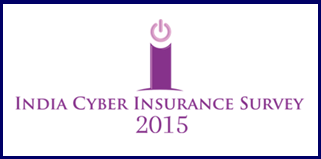We are all Netizens who depend on Internet for our day to day communications as well as transactions. It has been several days since we have visited Banks physically and are happy to transact through Internet and Mobiles. Come to think of it, all our financial assets whether it is our Bank savings or shares, are in the form of digital assets and are controlled through mobile apps.
Ask any Cyber Security expert, he will vouch that Apps are inherently unsafe and so are computers. Targetted phishing, sophisticated trojans created by state actors, spywares created by hacker network which even FBI is willing to buy, a well developed underworld where our credit card and ATM card details are available for a price, all threaten every rupee that we hold in the Banks.
Recently, Economic Times carried an article titled “Cyber frauds increased after growth in mobile banking, NEFT and RTGS: Study “. The article referred to a study conducted by ASSOCHAM and stated that Mobile Banking is being used by 2.2 crore account holders out of the 58 crore total bank account holders in India. The mobile banking transactions themselves jumped from Rs 1819 crores in 2011/12 to over Rs 10000 crores in 2014/15. The study also stated that mobile frauds jumped from Rs 10 crores in 2011/12 to around 70 cores in 2014/15. This indicated that while the usage grew by 5 times, the frauds grew faster by 7 times. i.o.w. Frauds are growing at a rate 40% faster than the usage.
If we consider that the fraud data is under reported, it is clear that frauds grow at rates faster than the usage. An extrapolation of the ASSOHAM study indicates that if in the next decade, the entire Banking starts using mobile banking, the frauds would grow to around Rs 2100 crores. Our own estimate is that even this is an underestimation.
These frauds only take into account individual cyber crimes. If we consider the possibility of cyber terrorism and cyber warfare, Cyber Risks can create an economic wipe out of our country if we donot realize the risks and take effective counter action.
Does the Government of India which is set to usher in a “Digital India” for our benefit know about the risks? We should say that they do know the risks. Afterall, Mr Modi has made a statement that India should focus on Cyber Security to the extent that we should lead the world in this domain. This was a statement I made more than 10 year back and we can rejoice that at least now, a Prime Minister of India has realized the importance of Cyber Security.
But is it sufficient if we are only thinking of how to build a business in Cyber Security like Israel has done?.
The Digital India initiative is set to increase the dependence of the Netizens on Internet for every aspect of our life. Along with this dependency, what is increasing is the Cyber Fraud Risk. Today there are hundreds of frauds that are happenning in mobile Banking and Internet banking. Most of them are not however reported and the RBI is content in claiming that the losses are not too disconcerting. As the Digital India initiative progresses further, we will have more frauds that will start eroding the wealth of the Indian public. Then one day an attack by a Pakistan terrorist group or Chinese Cyber army will close down all Banks through a cyber attack and Indians will face a situation like the Greece people when all ATMs will be empty and no money can be withdrawn. Probably our money will also be siphoned off to fund the terrorists to create more physical damage on our property and people.
In such a scenario, we need to initiate suitable policies at the Government level to tackle the problem of financial frauds through Cyber crimes , cyber terrorism and cyber warfare.
The DOT has a policy on Cyber Security but it does not focus on the “Security of Financial Assets of Netizens”. Recently the DOT came up with a policy on Net Neutrality but not on Netizen safety.
RBI has so far failed in its responsibility to maintain its statutory responsibility in securing the Indian Banking scenario. Mr Raghuraman Rajan appears to be completely oblivious to the needs of Secured Banking and cannot look beyond the monetary policies and Inflation control.
We the Netizens therefore need to organize ourselves to bring enough pressure on the Government to focus on Cyber Fraud Control. Naavi.org has been working in this direction from a long long time and would continue to do so. As another step in this direction, we have created a local circle titled “Save Digital India From Cyber Frauds” and invite all like minded persons to join the forum and express their views so that our combined voice reaches the otherwise hard of hearing administrators.
The link to the local circle is available here.
A request for joining can also be sent to the undersigned so that an invitation can be sent.
Join the forum and help in the development of a draft Cyber Fraud Protection Policy for Netizens in India, which shall be the key deliverable that this special interest group will aim at.
Naavi








